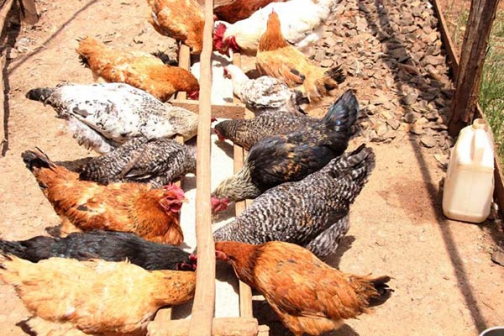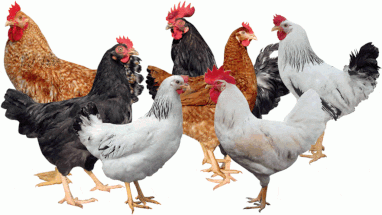Kienyeji poultry farming is one of the most profitable ventures if done right and according to a defined plan taking into account all the resources needed and the anticipated risks. Chicken rearing and selling is profitable because it is a form of food for the ever increasing populations in Kenya and other areas hence a continuing need to feed people. There is also an increased demand for white meat due concerted public awareness on the dangers of red meat and the health complications associated with it.

While we give suggestions on this Kienyeji chicken platform on what to do as part of your business plan, this does not in any way preclude you from carrying out your own independent search for new information and due diligence as you set out in this journey of chicken farming. These are some of the things you can include in your plan:
Selecting an investment area
Poultry farming has so many small sub sectors one can invest in. carefully choosing the niche you want to embark on is a first step. You can select any one or more of the following areas;
- Formulation of chicken feeds for sale.
- Rearing of chicken for meat.
- Keeping chicken for egg production (Breeding of layers).
- Breeding of chicks (hatchery business)
- Keeping chicken for meat.
- Manufacture of poultry equipment or sale of equipment.
- Meat and Egg processing, packaging and sales.
- Marketing of chicken.
- Poultry business consultancy.
Look for what can make good business and money in your locality and look at your resources and invest in it.
Chicken Type
Look at the type of chicken you want to keep. Are you keeping for eggs or meat or both. And which breed? Are you rearing KARI breed, Kuroiler, Rainbow Rooster, Kenbrow or which one? Research their unique attributes, visit farms, ask questions and make a decision.
Capital
After choosing your breed and the type of business you need to look at capital that you have or that you can get. The scale in which you want to operate depends on the capital at your disposal. You can start with 100 birds or 500 birds all depending on your ability to construct a house and feed them to maturity. A good start up can go for as low as kshs. 20,000 or 50,000 all the way to 100,000 to 200,000.
Location
Next choose a location that is quiet, away from residential areas and has adequate water among others.
Poultry House
Building a good chicken house will help determine up to 40% of the success of the venture. There are several housing types categorized as extensive system, Semi intensive and intensive system.
In free range they are allowed to roam freely in search of food. This method not recommended for large scale commercial farming.
Purchase of poultry equipment
It is prudent at this juncture to make a list of all the equipment you will need for successful farming. This could be drinkers, feeders, crates, nests, perches, trays for eggs, lights, incubators among others.
Feed
This will form about 70% of your farm expenses and must be thought through very carefully. If you have a large flock it is recommended that you make your own feeds as this will help you cut down on costs significantly. You can learn how to make your own feeds through our Chicken Feed Formulation manual which you get through this link http://www.kienyejichicken.com/feed_formulation.php. Alternatively you can purchase already made feed from feed vendors.
Labour
If resources allow have dedicated staff to closely monitor and care for the birds if you are not near the farm most of the time.
Accounts
Track performance and productivity of your farm through keeping simple but important accounting records. Nowadays simple farm accounting software can be downloaded from the internet and used effectively to track performance in the farm. This is a very important activity.
Health
Plan for and monitor health status of the birds eg vaccines and medications like deworming at the appropriate time.
Marketing
Before you start, figure out the potential markets for your chicken and work backwards to produce for that market while employing the most effective marketing strategies.
Project a return on your investment taking into account that poultry farming has a longer payback period, is prone to risks if not well managed, is labor intensive and can be messed up by diseases and predators.
You can get our Chicken Feed Formulation manual at https://www.kienyejichicken.com/feed_formulation.php
Chicken farming manual at https://www.kienyejichicken.com/
Chicken Housing manual at https://www.kienyejichicken.com/kienyeji_housing_manual.php


